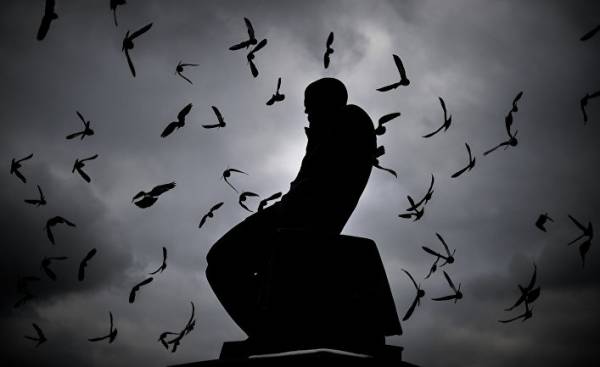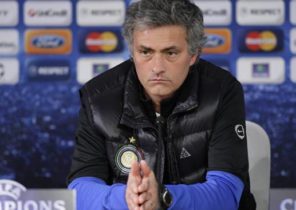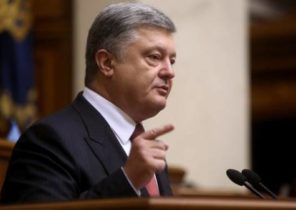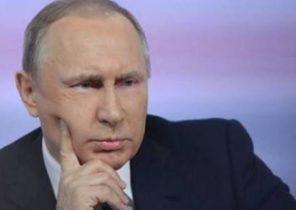
One of the readers posted a link to this essay 2014-repudiation Kostecki Bradatan, which focuses on how to understand Russia through the great novel of Dostoevsky “the Brothers Karamazov”. In the beginning Bradatan speaks about some demonic aspect of the Russian soul, something that cannot be explained rationally. Here is an excerpt from his work:
“The sudden decision by Vladimir Putin to start the division of Ukraine on part recalled must be Eastern Europeans not only traditional Russian expansionism, but also something else, something worse. In the collective memory of Eastern Europe still live episodes are so fierce and dreadful cruelty of Russia, which is nothing to do with politics they have, even with the most cynical manifestations. Regardless of what angle you examine it — even in the context of the logic of repression — these actions simply make no sense; they’re too radical to perform any punitive or preventive function or to serve any other rational purpose, for that matter”.
One such event was the famine organized by Stalin in the Ukraine as a political punishment. Here’s another excerpt:
“According to estimates given by Yale University historian Timothy Snyder in his recent book “blood of the earth”, famine took the lives of about 3.3 million people. (About three million ethnic Ukrainians and the rest Russians, poles, Germans and Jews.) How did this happen? First, when farmers are unable to provide Moscow set unreasonably high quotas for grain, all their food supplies were confiscated. “[The authorities] were looking for the grain, as if do not bread it, and bombs, machine guns,” writes Vasily Grossman, whose book “Everything flows” is one of the most “compassionate” of reports about the Ukrainian famine. Everything edible was taken away by party activists and members of the OGPU (Soviet secret service). Was removed whole seed Fund; it was destroyed even already cooked food and all that stood on the table.
After that, people left to die the slowest of deaths: “the Village alone — surrounded by desert and hunger in the huts. And representatives from different city drive stopped”. So nobody escaped, the OGPU established the roadblocks and railway station, guarded by armed soldiers. Stalin kept up to date with everything that was happening through the channels of the party and the OGPU “.
Many in Russia fascinates me as an American. But if I were a Ukrainian, I every fiber of his soul would hate Russia for it.
Others mentioned Bradatan incident was the shooting in the Katyn forest of Polish officers and soldiers who were defeated by the invading Nazis and preferred to surrender to the red Army. And killed them all:
“The murder was performed individually: two officers of the NKVD was holding the victim’s hands, while a third shot him from behind in the head. One victim at a time, about 21 892 times. What they kill unarmed, defenseless prisoners? Yes, just like that.
“Just so” — this is what characterizes these episodes. They are incredibly cruel, senseless and incomprehensible. They seem to emerge from the darkest corners of human nature: no matter how carefully we did not study, can not understand”.
The Russians did something similar in relation to ourselves. The essence of the Gulag and the Great terror was the same: just. Bradatan the Prosecutor quoted at the end of “the Brothers Karamazov”, claiming that the character of the Russian people stretches between the “two depths”: the lofty ideals and vile degradation. Russia can fly high and fall low. Bradatan argues that Dostoevsky in his novel could reflect the depth of the Russian soul through portraits of the brothers.
Have a tireless philosopher Ivan Karamazov. And Alesha is the highest level of Russian spirituality. Here are the details:
“Dmitry Karamazov — the face of Russia direct. So says the Prosecutor who sends him to Siberia. “And yet, here it is, our Rossiyushka, smell it, hear it, mother!” We, Russians, are “lovers of enlightenment and Schiller, and at the same time we are raging on restaurants,’ he says, ‘ good and evil in astonishing confusion.””
It is symbolic that the most important character is the bastard son of Karamazov senior Smerdyakov, who defends that aspect of the Russian soul, which nobody wants to recognize not. In the novel he is a nobody, although appears to be extremely important due to its actions. According to Bradatan, the key here is that he creates evil for his own sake. “He kills just because.” Read more:
“The Smerdyakov aspect is always unclear, but a terrible force, permeates the whole of Russian history. Its basic principle succinctly formulates the slave himself: “Russian people have to flog-p” Why? Just. Inflames the Smerdyakov aspect is always particularly strong in leaders and institutions, ruling with terror; the repression for repression. His influence is huge, the memory is traumatic, and social effects cause paralysis. Joseph Conrad sees in these institutions smerdyakovs “something inhuman,” from another world. The government of tsarist Russia, based on the omnipresent and omnipotent secret police, and “arrogating to itself the Supreme power to torment and kill his subjects like a God-sent scourge, showed particular cruelty to those who were allowed to live under the shadow of her grace.” And this was only the beginning.
It was Stalin who brought the Smerdyakov aspect is always to perfection. Under his direction, “Smerdyakov” starved millions of Ukrainian peasants killed tens of thousands of Polish prisoners of war. In Siberia, he has built a vast network of camps and prisons, where a significant part of Russia’s population turned into slaves. And all this without a special reason — just like that. Alexander Solzhenitsyn in his “GULAG Archipelago” was documented in all it’s horrific detail. The great terror, organized and carried out by Stalin with the help of the NKVD in the 1930-ies, is perhaps the most striking example of smerdyakovschina, the Smerdyakov aspect in the 20th century Russia. For several years, without any rational reasons had been destroyed artistic, scientific, political and military elite of the country. Many of the best writers, scientists, engineers and generals got shot in the head.”
Bradatan goes to the fact that Putin must be understood as one manifestation of smerdyakovschina, the Smerdyakov aspect — not Stalin level, but still. As a whole his work can be read here.
I appeal to readers with knowledge of Russia and/or Russian literature, to comment on this essay. I find it amusing and want to hear what you think about it. With my current view, the most interesting aspect of the work is his main assertion that the greatness of Russia and its evil are two parts of one organic unity. Bradatan quoted the following passage from the speech of the Prosecutor in “the Brothers Karamazov”:
Two abysses, two abysses, gentlemen, one and the same moment — without that […] their existence is incomplete.”
It is possible to tell, this image of two overlapping gaps is a picture of Russia itself. The low and high, the mean and the noble, blasphemy and Holiness, absolute cynicism and exalted idealism — it found everything.”
What do you think?
CLARIFICATION: it seems to Me that something similar can be said about South America. Minnesota, in accordance with most standards, more suitable for housing than Mississippi, whose stories are more of poverty and racist violence. But Minnesota never had a Faulkner, Welty or Percy, and could not be. I do not belittle its value. I’m just saying that the fate of the Mississippi — and the entire American South in General — as tragic as Russian. Think about it: Rogue Flannery O’connor – the same Smerdyakov.
CLARIFICATION.2: well, Well, in Minnesota, were also great writers. I’m not saying that this is not so. I don’t think any of them could compare with Faulkner, but that’s just my opinion.







